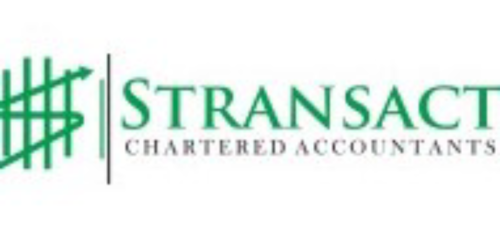
Against the backdrop of recent controversial policies by the Central Bank of Nigeria (CBN), Stransact (Chartered Accountants), the correspondent firm in Nigeria for the 6th largest international accounting firm -RSM, has cautioned against excessive currency regulation.
Recently, the CBN announced that individuals will only be able to withdraw N100,000 per week (from over-the-counter, point-of-sale machines or automated teller machines), while organisations can access N500,000 per week. The policy was eventually reversed after a lot of public outcry with the apex bank increasing withdrawal limit to N500,000 per week for individuals.
According to Eben Joels, the General Partner, Stransact, excessive currency regulation can stifle the economy.
“We have a large number of rural population where internet penetration and cashless banking is still relatively low. We also have a high prevalence of illiteracy. These factors make the these tight policies on cash withdrawals and cash deposit a needless strangle hold at this time,” said Mr. Joels.
“This is the time we should be doing all to remove all regulatory bottlenecks, and lowering transaction costs,” he added.
The latest CBN policy also include plans to make only N100 and N200 notes available in ATM machines.
He further remarked that currency control could actually spike an economic crisis if not properly managed. “In November 2016, India declared that the country’s two highest-denomination currency notes (Rs 1,000 and Rs 500) would be withdrawn immediately from the market. That policy, tagged “demonetization” was aimed at curbing black money and corruption. The immediate fallout was chaos, as the country scrambled to cope. Many people suffered, especially the poor, who had no access to credit cards or mobile wallets. Nigeria should learn the lessons from India without repeating her mistake’’.
“If people start rejecting 200 and 100 Naira notes, that can’t buy anything anyway, and insist on Bank transfer for every transaction, things are likely to become more expensive. “Tampering with free movement of the currency sends a bad signal to the market that things are not right.”
Mr Joel’s comments were buttressed by Victor Athe, Partner, Tax Services at Stransact.
“A lot of informal players may resort to holding a lot of cash. This sector currently accounts for the majority of economic activities in the country. The goal of emerging economies like Nigeria should be to drive the increased formalization of the informal sector, as much as possible”.
Returning to the lessons to be learnt from India, Mr Joels added that “Currency regulations by itself cannot take the place of policing in checking widespread insecurity. The government should address the massive youth unemployment, which the National Bureau of Statistics puts at over 40% in its recent report. The government should stimulate formal small businesses with demand and redesign policing around its federal structure”.
About Stransact
Stransact is made up of local partners who are knowledge leaders in assurance, advisory and tax services. Stransact has been providing high level professional services in Nigeria since 2009. The firm has stated that its affiliation with RSM aligns “snugly with the firm’s vision of being among the leading firms in Nigeria in the near future”. It increases the firm’s ability and quality and gives the firm access to the people and resources of RSM international.










